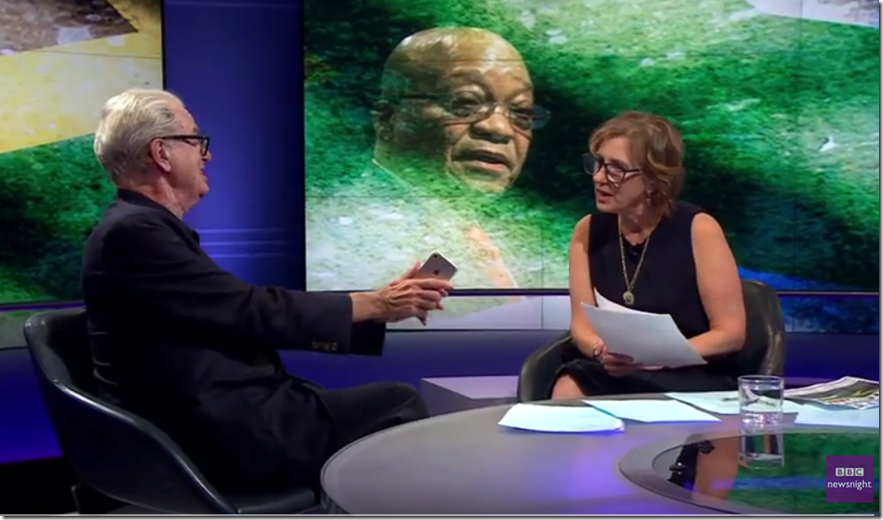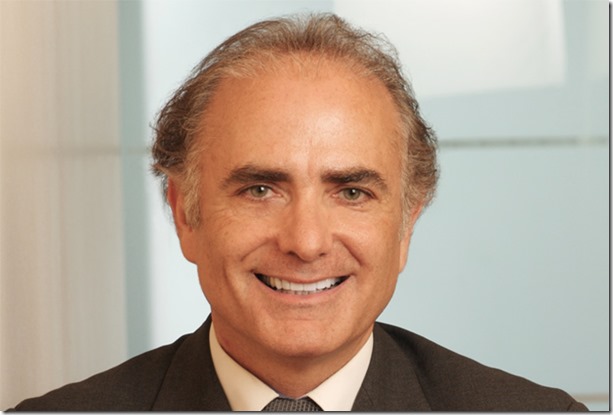March 2011: The 5 Worst Video Media Disasters
Bombings! Bigots! Breakups! Broadcasting Executives!
That over-heated alliteration can mean only one thing: It’s time for the five worst video media disasters of March!
Here are this month’s top five media disasters, in descending order:
#5: General David Petraeus’ Bombing Joke
In a scene reminiscent of Ronald Reagan’s controversial joke about bombing the Russians in five minutes, General David Petraeus greeted U.S. Defense Secretary Robert Gates to Afghanistan earlier this month with a joke of his own.
Petraeus asked, “Flying a little bigger plane than normal – you gonna launch some attacks on Libya or something?” “Yeah, exactly,” Gates responded, as both men laughed. Little did they realize that a news microphone was listening in.
The quip was cringe-worthy at the time, but turned out to be prophetic. The U.S. joined attacks on Libya just two weeks later.
4. Newt Gingrich Explains His Divorces
You have to give likely 2012 GOP presidential candidate Newt Gingrich credit. He knew he’d have to explain to socially conservative voters why he cheated on and left his two sick wives.
But it was impossible to predict he’d blame his behavior on his overwhelming love for America. By his logic, a presidential candidate who cheated on and left seven wives would be even more qualified to lead.
Click here to see my full analysis of this incident, “Bad Apologies Are Worse Than No Apologies.”
#3: Domestic Abuser Chris Brown Grows Up. Or Something.
Singer Chris Brown, who was convicted of beating his then-girlfriend Rihanna in 2009, appeared on ABC’s Good Morning America to promote his new album. But Brown got edgy when anchor Robin Roberts asked him about the case.
“It’s not really a big deal to me now,” said Brown, apparently unconcerned that people might still hold the fact that he beat a woman against him. He then talked about “going through everything I went through,” making clear he sees himself as the primary victim.
But the real action came after the interview, when he threw a tantrum so severe that scared ABC staffers called security. Oh, and he threw a chair through a window in his dressing room, endangering pedestrians on the sidewalk below. Charming.
#2: Herman Cain and Neil Cavuto Talk About The Unpatriotic American Muslims
There is a beautiful poem by a German pastor inscribed on the walls of Washington, D.C.’s Holocaust Museum. It reads:
“They came first for the Communists, and I didn’t speak up because I wasn’t a Communist.
Then they came for the Jews, and I didn’t speak up because I wasn’t a Jew.
Then they came for the trade unionists, and I didn’t speak up because I wasn’t a trade unionist.
Then they came for the Catholics, and I didn’t speak up because I was a Protestant.
Then they came for me, and by that time no one was left to speak up.”
I cite that poem because possible GOP candidate Herman Cain, a Tea Party darling, smeared all American Muslims by saying he would likely not allow a Muslim in his cabinet:
“I would have to have people totally committed to the Declaration of Independence and the Constitution of this United States. And many of the Muslims, they are not totally dedicated to this country. They are not dedicated to our Constitution. Many of them are trying to force Sharia law on the people of this country.”
So, I’m speaking up. Do a few extreme American Muslims meet his criteria? Sure. But his dangerous fear-mongering goes well beyond a radicalized few and smears an entire group of patriotic Americans. Worse, anchor Neil Cavuto treats Cain with kid gloves, seeming to regard Mr. Cain as that loveable uncle who occasionally goes a bit too far.
The number two slot is shared equally between Herman Cain and Neil Cavuto this month.
#1: NPR Fundraiser Ron Schiller Blasts Republicans and the Tea Party
Chief NPR fundraiser Mr. Schiller went to lunch with a couple of men claiming to be Muslim donors. It turned out they were Republican activists with a hidden camera.
During the lunch, Mr. Schiller shared his views of the Tea Party:
“Basically, they believe in white, middle America, gun-toting — it’s pretty scary. They’re seriously racist, racist people.”
It’s rarely a good idea to brand an entire group as racist. That he generalized about the motives of an entire group of people was bad enough, but that he did it while NPR was in the midst of an already heated debate about its public funding was flabbergasting. His comments not only led to his immediate resignation, but the resignation of NPR’s CEO, as well.
And his comments directly led to the House of Representatives voting to strip NPR of its federal funding. The Senate will probably prevent that from happening, but NPR’s P.R. woes will continue.
Click here to see my full analysis, “If You Don’t Want It In Print, Don’t Say It At All”
Okay, so this was a heavy month. Here’s a fun bonus!
BONUS: Former Senator Doesn’t Like That Darn Rap Stuff
Former Senator Alan Simpson, who served on President Obama’s entitlement commission, appeared on the Fox News Channel to talk about Social Security and Medicare reform. But he went slightly off-message with a cranky pants rant that made him look more like Grandpa Abe Simpson than Senator Alan Simpson.
Note to grandparents: It’s always going to be funny if you think Eminem is called “Enema Man” and Snoop Doggy Dogg is known as “Snoopy Snoopy Poop Dog.”
BONUS, PART TWO: If you like the Enema Man as much as Sen. Alan Simpson’s grandchildren, here’s a music video. (Not suitable for work)
You can receive free monthly media and presentation training tips – before they appear on this blog. Sign up box is in the upper right on the blog. No spam, no marketing lists, no daily emails. Just content-rich emails. Sign up now, before you commit your own media disaster.
April 4, 2011: Weigh In On Our Question Of The Week: How Do You Control Fear When Doing Public Speaking?
April 3, 2011: The Five Things I’d Tell GoDaddy’s CEO About His Elephant-Killing Crisis Right Now



Mistake to include Schiller and NPR on this list and even worse to include the originally edited clip without even mentioning the contextual manipulations discovered when the raw video was later released. I generally agree that people should own the things they say in any context, but Schiller wasn’t on TV. He was at lunch.
Further, neither the moment on the tarmac with Petreus and Gates nor the Schiller tape constitute “media” disasters. None of those people was aware that their words were being taped. Doesn’t make it OK, but it also doesn’t make it “media.” Petreus and Gates should know better, so whatever. But given the amount of misinformation surrounding the NPR saga, I think its inclusion here only exacerbates that problem.
I pick on the media daily and I have a special loathing for the politically naive minions in public broadcasting who constantly manage to get punk’d by idiots. But accepting that narrative is counterproductive, especially in light of the fact that the Schiller tape was heavily edited to create that narrative in the first place.
Dear Journowatch,
You make your case quite well, and I agree I should have been more clear about disclosing that the video was edited with a clear ideological bias.
That said, I respectfully disagree with your overall position. First, “media” gaffes are no longer just about mistakes that occur within the confines of media interviews. In an age where ubiquitous cell phones have cameras, every public figure is a potential target while in public, and should comport him or herself as such. To give you more of a sense of my thoughts about this, please see my article called “Why You Should Be Paranoid in Public.”
Mr. Schiller thought he was going to a meeting with a potential donor. But those people were total strangers to him prior to the lunch, nor did he appear to do any research about them in advance (a strange omission, given that a previously-unknown group was considering a $5 million donation out of nowhere). Regardless of context, it was wildly inappropriate to brand an entire political group as racist – a declaration that was even more surprising considering he had never met his lunch companions before. Considering so many conservative activists have gone after left-leaning groups before (e.g. Acorn, Planned Parenthood), he should have acted as if this was a media interview. Turns out, it essentially was – and that shouldn’t have been unanticipated.
As for Petreus and Gates, they needed only look at Ronald Reagan’s infamous “We begin bombing Russia in five minutes” gaffe. Public figures should know better than to joke about such things in any environment where camera might be present – and cameras greeting the Defense Secretary on a tarmac are far from uncommon.
As an aside, I like your website a lot, and appreciate your thoughtful criticism. I set up the blog in hopes that there would be a vigorous and thoughtful debate – and your comment is very much within that spirit. Thank you.
Best wishes,
Brad
Brad,
Thanks for the thorough response. I agree with every point you make but I still hesitate to call every instance “media.” In the case of Petreus and Gates, I agree 100%. They aren’t in media, per se, but they’re pubic figures and absolutely should know better, especially when cameras are merely feet away. And I can see your case with Schiller, since he does work in media. And the fact that no background was done on his potential donors is a fire-able offense in itself, imo.
My hackles were raised initially on the contextual issue regarding the O’Keefe tapes and your explanation of why they constitute “media” makes sense. And I appreciate your introspection on that point. But if I read your comments correctly, you seem to suggest that everyone is in the same boat now. And while we can all be caught on tape easily, is it fair to hold everyone to the same standard? Ordinary, non-public citizens who get caught-up in these things cannot reasonably be considered members of the media. And while everyone is getting more media savvy with every new gadget, I think it’s unfair to hold the untrained to the same standard as the pros… at least for the foreseeable future.
One of the things I constantly remind my broadcasting students — just because you saw it on TV doesn’t mean it was the right thing to do. There’s still an awful lot of amateur hour out there.
On your aside. Thank you very much. You surely are aware of how difficult it is to gauge the impact we’re making with our blogs and every word helps. I really appreciate your site and your tone. Vigorous debate is easily found. It’s the thoughtful part that separates the wheat from the chaff. On that scale, your site is amber waves of grain. Thanks for the conversation.
Regards,
Paul Westlake
Journo Watch
Hi Paul,
Thanks for your thoughtful reply. I understand why my omission of the context surrounding the O’Keefe tapes raised your hackles. I always struggle with the question of how much disclosure is too much (which usually leads to bogging down the writing), and how much is necessary. I probably should have erred on the side of “necessary” on this one.
I also agree that ordinary, non-public citizens should probably be held to a different standard than public figures. In this case, I’d argue that Schiller’s role as a VP for National Public Radio made him a public figure. That said, fair or not, even non-public citizens should be careful. I’m thinking about the young UCLA student who posted a racially insenstitive video to YouTube recently – and dropped out of school due to the intensely negative response her unfortunately viral video caused.
Anyway, after re-reading your two comments, I suspect we agree on about 90 percent of this stuff. Please keep reading (I’ll do the same with Journowatch), and look me up next time you’re in NYC.
Best wishes,
Brad
Hey Brad,
The balance between edifying and boring can be razor thin, no doubt. I’m still more forgiving of amateurs in general but posting your own meltdown online certainly qualifies as a “media disaster.” No argument there.
I do think we need to be careful about what constitutes a public figure, though. I’m not specifically disagreeing with your assessment of Schiller, who stepped in a trap of his own devising. I just think there must be room in our world for people to do important work without being subjected to the indignities of the media glare. But, of course, that very argument is often the last refuge of a scoundrel.
I don’t know exactly where the dividing line should be, just that it seems important to allow for the possibility that people can make significant contributions without also being required to be expert in handling the media. I think we, as media pros, can assist by being more forgiving of amateur mistakes even as we’re critical of professional malfeasance.
You’re right, we probably do agree on the vast majority of these points. And I’m based in Brooklyn, so drop me a line at the gmail account sometime and we’ll compare notes.
Thanks for the interesting discussion.
PW/JW